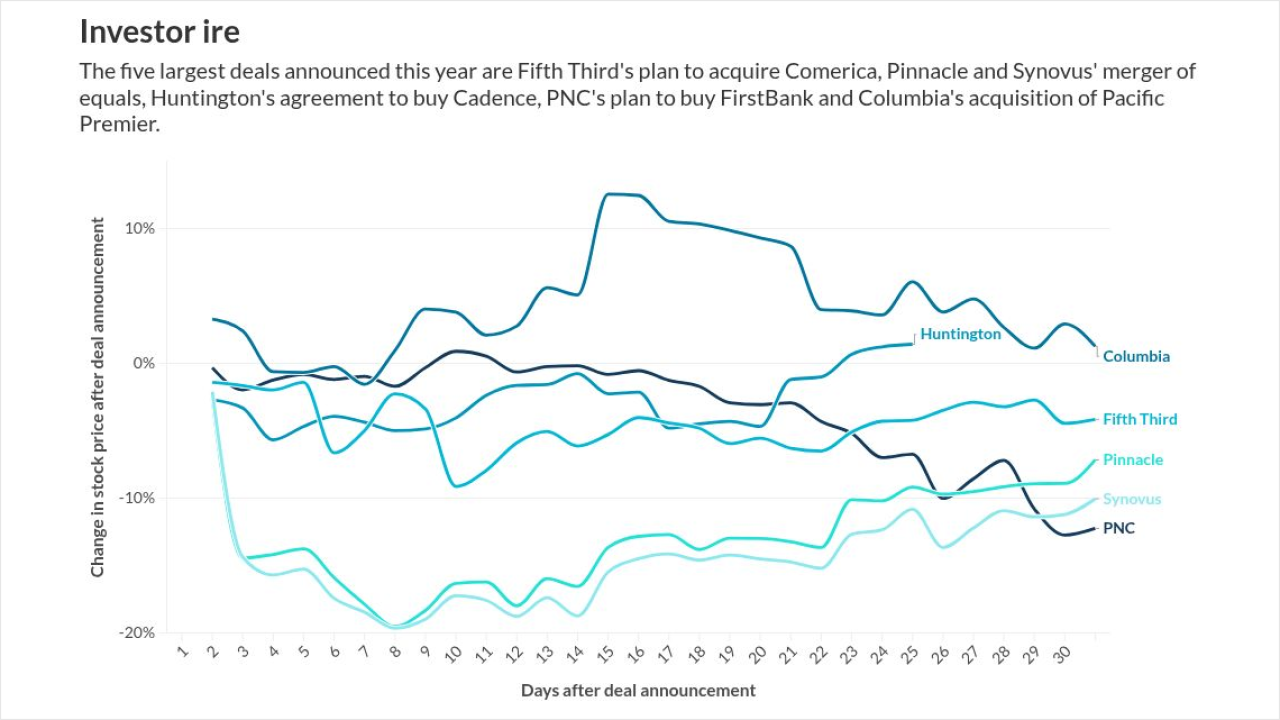The other shoe dropped though it still hasn't hit the floor.
MBNA Corp. will begin issuing American Express Co. credit and charge cards in the United States sometime this year, the two payment giants announced in January. The agreement also calls for MBNA to issue AmEx cards in Canada, Spain and the United Kingdom.
The MBNA/AmEx cards will carry the blue AmEx logo and be processed over AmEx's network. MBNA, the second-largest bank card issuer in the U.S., will own the receivables and manage the accounts.
The deal is the first between AmEx and an issuer of MasterCard International and Visa USA credit cards in the U.S.
AmEx's Global Network Services division will oversee the deal. GNS has 79 partnerships with banks in 90 countries that issue AmEx cards locally. MBNA will lead decisions on marketing cards, says David House, AmEx group president, global network and establishment services, travelers cheque and prepaid services.
The U.S. part of the deal depends on a ruling from the U.S. Supreme Court in the antitrust case brought by the U.S. Department of Justice against Visa and MasterCard. AmEx and MBNA said they wouldn't issue any card until after the ruling.
The deals in Canada, Spain and the U.K. will move forward as technical issues are addressed, executives say. In January 2002, Canadian Imperial Bank of Commerce, Canada's largest Visa issuer, began issuing AmEx cards in Canada. Capital One Financial Corp. also issues a cobranded AmEx card in the United Kingdom.
MBNA executives say an AmEx card may be marketed as an option to its 5,400 affiliate card organizations. Additionally, some cards that now carry the MasterCard and Visa brands may be converted to the AmEx brand.
"This rounds out our product offerings," says Richard K. Struthers, chairman of MBNA Europe and MBNA Canada.
Though financial terms of the deal weren't released, executives said that MBNA will share in the discount rate that AmEx charges merchants for processing transactions over its network. MBNA will also see revenues from the variety of fees imposed on cardholders.
The discount rate that AmEx charges merchants can be as much as a percentage point higher than the interchange that Visa and MasterCard charge merchant acquirers. Acquirers pass the interchange fees on to their merchant clients.
The alliance appears to be a giant win for AmEx, as it gains access to MBNA's cardholders and marketing capabilities.
"We focus on high-spend cardmembers. MBNA will attract more and that will be good for our merchant base," says House.
Michael D. Cohen, an analyst with CIBC World Markets Corp., believes the deal may prove complementary for the firms, with AmEx getting more transactions on its network. Meanwhile, "MBNA was savvy to be the first to sign up," and will become a kind of "anchor tenant" for other issuers considering partnering with AmEx, says Cohen.
An alliance with AmEx means greater access for MBNA to the travel-and-entertainment segment, says David A. Poe, chief executive officer of Edgar, Dunn & Co., a consultant to major payments firms. Issuers must weigh that advantage against the potential fallout from any redesign of their relationship with the card associations, says Poe.
For MasterCard, the new deal is especially touchy because two MBNA executives sit on its boards.
According to Struthers, Lance L. Weaver, MBNA's executive vice chairman, is on MasterCard International's board, while Edward H. Murphy, an MBNA vice chairman, is on the board of MasterCard USA. Struthers says MBNA expects its relationship with the two associations to remain strong.
Wilmington, Del.-based MBNA is primarily known as a MasterCard issuer, but it also issues Visa-branded cards. MBNA trails only Citigroup Inc., an issuer that leans heavily to MasterCard in card issuance.
Discover Financial Services said in a statement that it has been holding discussions with MasterCard and Visa issuers and is "looking forward to completing such deals."
American Express' Travel Related Services, the company's card-issuing unit, reported 2003 net income of $2.4 billion, up 14% from 2002's $2.1 billion, on revenues of $19.2 billion. American Express had 36.4 million cards in force in the U.S. in the fourth quarter.
MBNA reported 2003 net income of $2.34 billion, up 32% from $1.77 billion in 2002. Receivables totaled $118.5 billion in the fourth quarter.
The alliance follows the landmark October 2001 ruling in U.S. District Court in Manhattan that the card associations violated the Sherman Antitrust Act by prohibiting their bank members from partnering with AmEx and Discover.
In that case, Judge Barbara S. Jones ruled in favor of the DOJ but stayed the decision pending appeals. That put a hold on any banks issuing cards with AmEx or Discover.
The associations lost an appeal before a three-judge panel of the Second U.S. Circuit Court of Appeals in New York last September. In January, the full Second Circuit Court refused the associations' request for a review of the panel's decision.
The associations vowed to take their case to the Supreme Court. The Second Circuit ruled that Jones' stay would remain in place while the appeal process continued.
The Supreme Court can deny a hearing, issue an expedited ruling or decide to hear the case in its session beginning in October.
In a typical term, the court issues a decision in less than 200 of the 7,000 filings it receives.
-
Democratic lawmakers, led by Senate Banking Committee ranking member Elizabeth Warren, D-Mass., press 21 institutions for fee data after a federal agency halted disclosure requirements.
3h ago -
The CEO spoke with American Banker about the company's plans for AI, blockchain, taking its digital wallet global and making PayPal and Venmo work together for the first time.
4h ago -
Financial institutions see an opportunity to nab scale after years of tepid dealmaking, but investors are pushing back against such efforts out of concerns about shareholder value.
December 1 -
The global bank created an educational campaign designed to alert customers to the risk of AI-generated scam advertisements on social media.
December 1 -
The Wisconsin-based regional bank plans to acquire American National Corp. in an all-stock transaction valued at $604 million. It is Associated's first acquisition announcement since Andy Harmening became CEO in 2021.
December 1 -
After Citizens CEO Bruce Van Saun announced a company-wide AI makeover, Chief Information Officer Michael Ruttledge told American Banker about what's happening under the hood.
December 1





